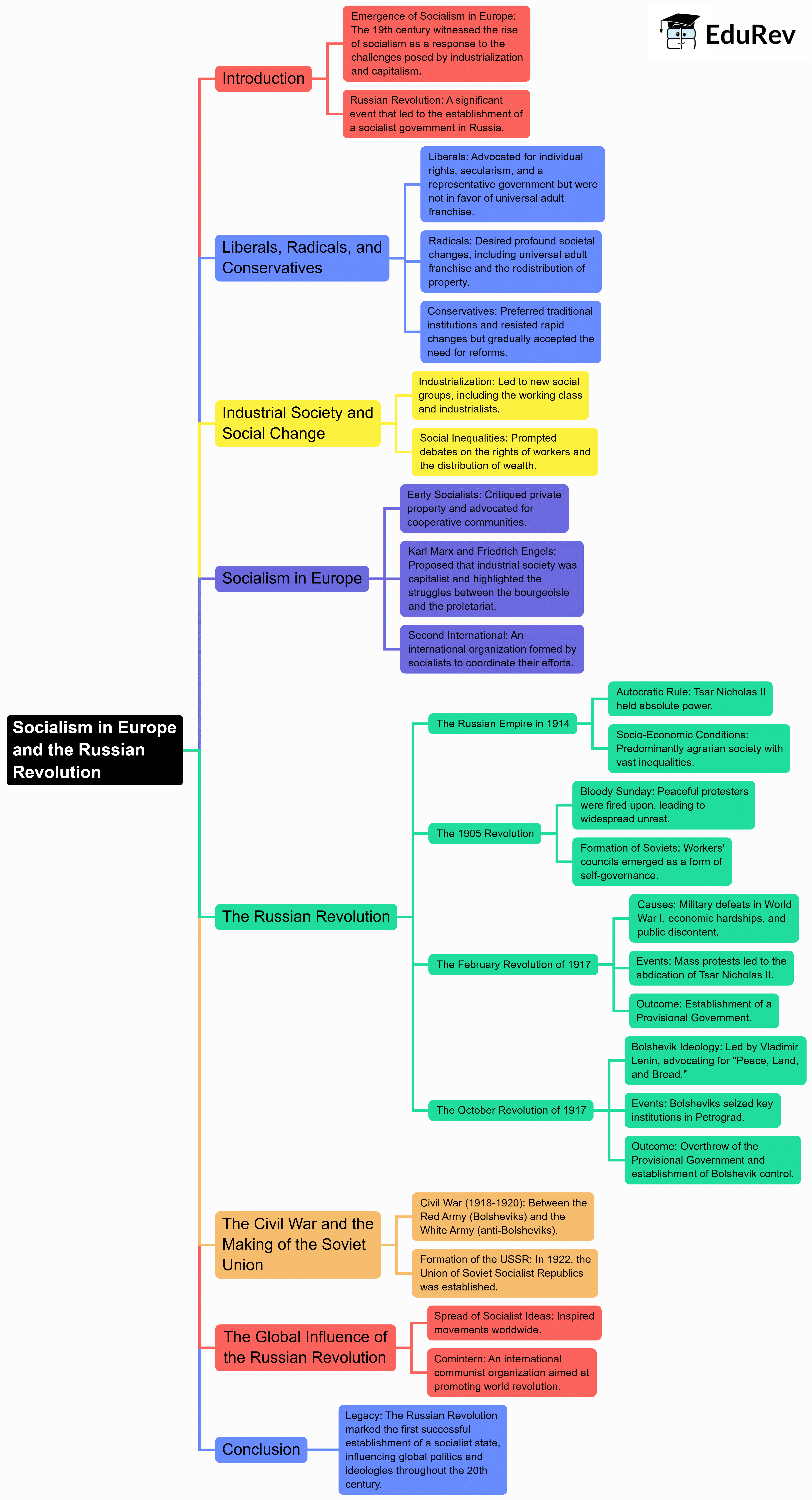UPSC Exam > UPSC Notes > Famous Books for UPSC Exam (Summary & Tests) > Mind Map: Socialism in Europe and the Russian Revolution
Mind Map: Socialism in Europe and the Russian Revolution | Famous Books for UPSC Exam (Summary & Tests) PDF Download

The document Mind Map: Socialism in Europe and the Russian Revolution | Famous Books for UPSC Exam (Summary & Tests) is a part of the UPSC Course Famous Books for UPSC Exam (Summary & Tests).
All you need of UPSC at this link: UPSC
|
743 videos|1444 docs|633 tests
|
FAQs on Mind Map: Socialism in Europe and the Russian Revolution - Famous Books for UPSC Exam (Summary & Tests)
| 1. What is socialism and how does it relate to Europe and the Russian Revolution? |  |
Ans. Socialism is an economic and political ideology that advocates for collective ownership and control of the means of production. In Europe, socialism emerged as a response to industrialization and social inequalities, with countries like Germany, France, and the United Kingdom adopting socialist policies. The Russian Revolution, which took place in 1917, was heavily influenced by socialist ideas and led to the establishment of a socialist state in Russia, known as the Soviet Union.
| 2. How did socialism impact Europe during the time of the Russian Revolution? |  |
Ans. The Russian Revolution had a significant impact on Europe in terms of spreading socialist ideas and inspiring revolutionary movements. The success of the Bolsheviks in Russia encouraged socialist parties in other European countries to push for similar revolutions. The Russian Revolution also heightened the fears of capitalist governments in Europe, leading to increased measures to suppress socialist movements.
| 3. What were the key factors that contributed to the Russian Revolution? |  |
Ans. Several factors contributed to the Russian Revolution. The harsh living conditions of the working class, the autocratic rule of the Tsar, and Russia's involvement in World War I were major factors. Additionally, the influence of socialist ideologies, the leadership of Vladimir Lenin and the Bolshevik Party, and the discontent among various social groups played a crucial role in sparking and fueling the revolution.
| 4. How did the Russian Revolution impact the development of socialism globally? |  |
Ans. The Russian Revolution had a profound impact on the development of socialism globally. It provided a model for revolutionary socialism, inspiring communist and socialist movements around the world. The establishment of the Soviet Union as a socialist state also led to the spread of socialist ideas and the formation of socialist parties and organizations in different countries.
| 5. What were the long-term consequences of the Russian Revolution for Europe and the world? |  |
Ans. The long-term consequences of the Russian Revolution were far-reaching. In Europe, the revolution intensified the ideological and political divide between capitalist and socialist systems. It led to the formation of communist parties and the rise of communist governments in several countries, particularly in Eastern Europe. The revolution also had a profound impact on global geopolitics, shaping the course of the 20th century and influencing international relations.
Related Searches






















